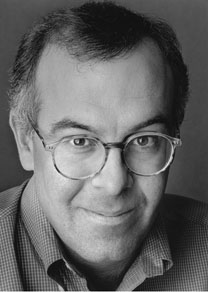It is time for a heartfelt confession.
Decades ago, I listened to Howard Stern on the radio.
Yes, that Howard Stern.
Let us list his sins, according to the Yom Kippur tradition, alphabetically:
- Assinine
- Boorish
- Creepy
- Demeaning to women
- Engaging in racism
- Foul mouthed
- Gross
- Hubris-filled
- Immature…
You get the idea.
Howard and I were precisely the same age, and of the same sociological/geographical milleu: Long Island of the middle middle class.
At a certain point, I outgrew Howard Stern.
But, here is the interesting news.
At a certain point, even Howard Stern outgrew Howard Stern.
I renewed my admiration for Howward after listening to Terry Gross’s interview with him on Fresh Air on NPR. They were discussing his new book.
I was impressed with his depth, his seriousness, and his willingness to look at himself realistically and critically.
Yes, he had been wildly successful — the most successful radio personality of his time, and perhaps of any time.
But, something was missing.
In the interview with Terry Gross, Howard talked about his childhood, and what it was like to grow up with a depressed parent.
He talked about facing a cancer scare.
He talked about the lengthy recovery period after surgery, and how it forced him to look inward — and how, with the help of serious therapy, he had begun the process of confronting his demons.
The truth is: Howard Stern had always been far more serious than the public would have imagined.
An old friend of mine told me about the time that he met with Howard and his sidekick, Robin Quivers, to discuss advertising on his program.
My friend was astonished to see that Howard was, in fact, deeply serious, a canny businessman, completely focused.
“He was a total gentleman,” my friend told me.
I was not surprised. Howard Stern was, and is, a clown by profession. The clown takes off the makeup.
And sometimes, as Smokey Robinson and the Miracles noted, there are tears of a clown.
All of which makes me think of another Jewish man, and his own struggles — David Brooks.
In his new book, The Second Mountain: The Quest for A Moral Life, Brooks talks about his own life journey, and he offers his readers an interesting thesis.
There are two mountains in life — which, for the sake of alliteration, I have dubbed the mountain of success, and the mountain of soul.
Regarding the first mountain:
On the first mountain, we all have to perform certain life tasks: establish an identity, separate from our parents, cultivate our talents, build a secure ego, and try to make a mark in the world. People climbing that first mountain spend a lot of time thinking about reputation management. They are always keeping score. How do I measure up? Where do I rank?
Some people get to the top of that first mountain, taste success, and find it… unsatisfying. “Is this all there is?” they wonder. They sense there must be a deeper journey they can take. Other people get knocked off that mountain by some failure. Something happens to their career, their family, or their reputation. Suddenly life doesn’t look like a steady ascent up the mountain of success; it has a different and more disappointing shape. Whatever the cause, these people are no longer on the mountain. They are down in the valley of bewilderment or suffering.
Aging, maturation, parenting, divorce, and the consequences of an encounter with his own mortality knocked Howard Stern off that first mountain.
He landed in the valley, and from there, he was able to start climbing the second mountain. The second mountain is the mountain upon which you discover that individualism, living for your self alone, ambition, needing to have it all — those might be nice, but they don’t fill your soul. Sometimes, it comes about because of some sort of suffering.
Those people who have been made larger by suffering are brave enough to let parts of their old self die. Down in the valley, their motivations changed. They’ve gone from self-centered to other-centered.
At this point, people realize, Oh, that first mountain wasn’t my mountain after all. There’s another, bigger mountain out there that is actually my mountain.
The second mountain is not the opposite of the first mountain. To climb it doesn’t mean rejecting the first mountain.
It’s the journey after it. It’s the more generous and satisfying phase of life.
David Brooks admits that he has covered some of this territory before. He admits that the first mountain/second mountain narrative is very similar to the résumé virtues versus eulogy virtues distinction that he made in his last book, The Road to Character.
He also admits that he’s not all that original. He quotes D. T. Niles: “We are like beggars who try to show other beggars where we found bread. I’m a teacher or middleman. I take the curriculum of other people’s knowledge and I pass it along.”
There is much to criticize in The Second Mountain. A number of inner inconsistencies; some sloppy and cliched thinking; a dizzying array of one line quotes that sound good, but would have needed Brooks to unpack them more vigorously.
At some point, I will probably have more to say about David Brooks and his complex and confusing spiritual journey.
But, never mind that. For the time being: I recommend both the Terry Gross-Howard Stern podcasts, and Brooks’ new book, however flawed it might be.
Both of these men — as different as they might be — have something to say to our souls during this difficult moment in the life of our civilization.
 David Brooks from Wikipedia courtesy Wikipedia
" >
David Brooks from Wikipedia courtesy Wikipedia
" >





